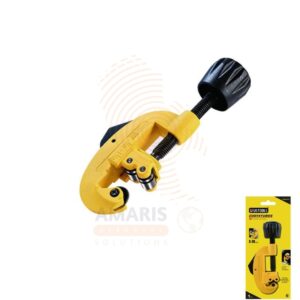BUILDING AND CONSTRUCTION, MANUFACTURING & INDUSTRIAL
Prescott Silent Air Compressor
Whatsapp Order
A silent air compressor is a device that generates compressed air with minimal noise emission during operation. Unlike traditional air compressors that can produce significant noise levels, silent air compressors are designed with sound reduction features to create a quieter working environment. These compressors are often employed in settings where low noise levels are crucial, such as in workshops, laboratories, or residential areas, allowing for more comfortable and less disruptive use.
KSh 32,500.00 KSh 33,500.00
Silent air compressor uses
- Home Workshops and Garages:
- Ideal for DIY enthusiasts and hobbyists who require a quieter environment for their projects.
- Suitable for powering pneumatic tools without causing disturbances in residential areas.
- Dental and Medical Facilities:
- Used in dental offices and medical clinics where maintaining a quiet atmosphere is crucial for patient comfort and concentration.
- Provides compressed air for dental tools and medical equipment without causing unnecessary noise.
- Laboratories:
- Commonly employed in research and scientific laboratories where precision work is conducted, and noise reduction is critical to avoid disturbances to experiments and measurements.
- Office Environments:
- Used for various applications in office settings, such as operating pneumatic mail systems or powering tools in a maintenance room without causing disruptions.
- Art Studios and Creative Spaces:
- Ideal for artists and creative professionals working in studios where a quiet atmosphere is essential for concentration and inspiration.
- Used for airbrushing, paint spraying, and other artistic applications.
- Small Businesses and Retail Spaces:
- Suitable for small businesses, workshops, or retail spaces where noise reduction is important for customer comfort and employee well-being.
- Residential Use:
- Used in homes for tasks like inflating tires, operating pneumatic tools for home improvement projects, or powering airbrush kits without causing excessive noise.
- Film and Television Production:
- Employed on film sets and television production studios where minimizing background noise is crucial for capturing high-quality audio during filming.
- Outdoor Events:
- Used in outdoor events and functions where compressed air is needed for various applications, such as inflating balloons or powering air-driven attractions, without causing noise disruptions.
- Cleanroom Environments:
- Suitable for industries and facilities with cleanroom requirements, such as electronics manufacturing, where maintaining a sterile and quiet environment is essential.
Safety Precautions
- Read the User Manual:
- Always read and thoroughly understand the user manual provided by the manufacturer. This will include important safety instructions, recommended usage guidelines, and maintenance procedures.
- Proper Installation:
- Install the silent air compressor according to the manufacturer’s instructions. Ensure it is placed on a stable and level surface to prevent tipping or vibrations.
- Check for Leaks:
- Regularly inspect the compressor and associated fittings for any air leaks. Address and repair leaks promptly to maintain efficiency and prevent the buildup of compressed air in unintended areas.
- Pressure Regulation:
- Set and maintain the air pressure within the recommended range specified by the manufacturer. Over-pressurizing can lead to equipment failure and pose a safety risk.
- Personal Protective Equipment (PPE):
- Wear appropriate personal protective equipment, such as safety glasses or goggles, when operating the compressor. This helps protect your eyes from potential debris or compressed air.
- Ventilation:
- Use the compressor in a well-ventilated area to disperse any heat generated during operation. Proper ventilation is crucial, especially if the compressor is operated indoors, to prevent the accumulation of fumes or overheating.
- Secure Hoses and Cables:
- Ensure hoses and power cables are securely attached to the compressor. Avoid creating tripping hazards or placing them in areas where they can be damaged or pinched.
- Automatic Shutdown:
- Check if the silent air compressor has an automatic shutdown feature in case of overheating or other malfunctions. Familiarize yourself with how this feature works and react accordingly.
- Safe Distance:
- Maintain a safe distance from the compressor during operation. This is especially important when using pneumatic tools or when the compressor is in an enclosed space.
- Emergency Stop:
- Be aware of the emergency stop or shutdown procedures. Familiarize yourself with how to quickly turn off the compressor in case of an emergency or if an unsafe situation arises.
- Regular Maintenance:
- Follow the recommended maintenance schedule outlined in the user manual. Regularly inspect and service the compressor to ensure its proper functioning and to prevent potential issues.
- Training:
- Provide proper training to individuals operating the silent air compressor. Make sure they understand the safety features, precautions, and correct usage procedures.






Mason –
User-friendly and incredibly effective.
Mason –